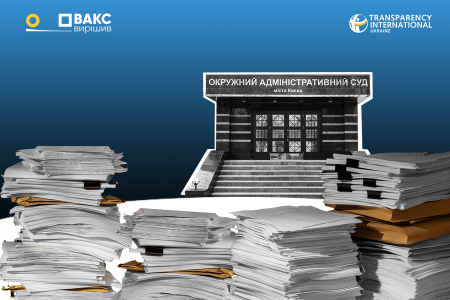On August 6, 2025, the HACC delivered its verdict in the case of former Head of the State Judicial Administration (SJA) of Ukraine Oleksii Salnikov. The panel of HACC judges found him guilty under Article 369-2(2) of the Criminal Code of Ukraine (abuse of influence). The former official was sentenced to three years of imprisonment and barred from holding positions in public and local government bodies for three years.
From September 2021, Oleksii Salnikov temporarily served as Acting Head of the SJA. He was officially appointed in April 2022 and dismissed in December 2023.
Given the influence of Salnikov’s former position and the gravity of the charges, this case attracted significant public attention. He was accused of fraud and incitement to bribe judges of the Supreme Court’s Administrative Cassation Court (the SC ACC) to secure a favorable ruling for Forvater Plus LLC.
The case also gained wide publicity due to its mention in the investigation materials concerning former Supreme Court Chairman Vsevolod Kniaziev, who, as reported, is accused of orchestrating a bribery scheme in exchange for favorable court rulings. Below is a summary of the circumstances of Salnikov’s case and the positions of the parties.
How the “We’ll handle it for a fiver” scheme worked
Former Head of the State Judicial Administration of Ukraine Oleksii Salnikov was accused of offering to arrange a bribe to judges of the Administrative Cassation Court through his acquaintance, businessman Oleksii Honchar, to secure a favorable decision in a case involving Forvater Plus LLC. The company is engaged in sand and clay mining, concrete production, and wholesale trade in construction materials and sanitaryware.
The case concerned the annulment of an appellate decision and the return of the case for retrial. The company sought to have the inaction of the State Service of Geology and Mineral Resources of Ukraine declared unlawful, specifically regarding its handling of an application for a special permit to use subsoil resources without an auction. Interestingly, in December 2023, the SC ACC did rule in favor of the company, partially granting the cassation appeal and declaring the inaction of the State Geology Service unlawful.
According to the investigation, in November 2022, Oleksii Honchar (who will be discussed in more detail below), acting at the request of company representatives, contacted Salnikov to learn the status of the case, particularly why no favorable decision had been made. Salnikov agreed to look into it, and on February 27, 2023, informed Honchar that the case at the Supreme Court could be “settled” for $5,000.
Surprised by the offer, Honchar reported it to the NABU and began cooperating with the investigation. Under the supervision of law enforcement, on March 5, 2023, he met with Salnikov in a restaurant and handed over $5,000. During the meeting, the following exchanges, which became key evidence in the case, were recorded:
Salnikov: "What’s this?
Honchar: That’s the five you mentioned.
Salnikov: Uh-huh.
Honchar: The only thing, I didn’t get it — you ran off. Are you in or not?
Salnikov: No, he just passed by and said... Well, it’s okay, he took everything.
Honchar: Well, if not, then I guess...
Salnikov: We sort of talked. I was just going to hand it over, even though the brother isn’t there. We can do it all for a fiver," —
These recordings from covert investigative actions were played during the court hearings.
Later in court debates, the prosecutor stated that the recording actually captured the phrase “ker. aparata” — an abbreviation for “chief of staff” — not “brata” (brother), as originally interpreted. The defense disputed this.
During the meeting, Honchar asked whether Salnikov’s “cut” was included in the amount. Salnikov assured him the money was not for himself. Shortly afterward, Salnikov said an additional sum was needed, and Honchar handed over another $2,500.
In further conversations, Salnikov told Honchar that the bribe had been delivered, assured him that the case was “under control,” and said he had discussed it with the chief of staff of the SC ACC, the Chairman of the Supreme Court Vsevolod Kniaziev, and Kniaziev’s assistant. He also promised that the SC ACC would issue a right decision in favor of Forvater Plus LLC, although he later explained the delay by saying the judges had become more cautious after the high-profile arrest of Kniaziev in May 2023. On occasion, Salnikov sent his deputy to meetings instead of attending himself, to confirm the “readiness to settle the issue.”
However, the money disappeared, and the ruling never materialized. This formed the basis of the prosecution’s main conclusion: from the outset, Salnikov had no intention of passing the bribe to the judges — his goal was not to “settle the issue” but to obtain money through fraud.
Therefore, the prosecution charged him with:
-
Incitement to provide an unlawful benefit (Article 369(4) of the Criminal Code of Ukraine)
-
Fraud (Article 190(2) of the Criminal Code of Ukraine).
However, the panel of HACC judges acquitted Oleksii Salnikov under Article 190(2) of the Criminal Code. Instead, the court reclassified the charge of incitement to bribery as abuse of influence and found him guilty under Article 369-2(2) of the Criminal Code.
What did Oleksii Honchar testify in court?
The key prosecution witness was Oleksii Honchar — a former businessman who has been serving in the Armed Forces of Ukraine since March 2023. He provided the court with a detailed account of how Salnikov received the money.
According to Honchar, on March 5, 2023, he met with Salnikov at a restaurant. He said Salnikov showed up despite complaining of illness. They sat on the second floor. Honchar placed $5,000 on the table, and Salnikov took the money, putting it in the pocket of his tracksuit. After that, Honchar handed over another $2,500.
Honchar stated that Salnikov assured him he had direct contacts with the chief of staff of the Supreme Court’s Administrative Cassation Court and that he was already communicating with judges in the case. To be convincing, Salnikov even showed him a screenshot of the case number on his phone.
Three days later, on March 8, Salnikov called Honchar and informed him that the money had been delivered and that the case was under control. In their conversations, he claimed that Supreme Court Chairman Vsevolod Kniaziev was aware of the matter and reassured Honchar that a decision would be issued soon. At subsequent meetings near the restaurant or in the car, he continued to insist that everything was under control and that the judges were working on the case.
In April 2023, they met near the building of the State Judicial Administration. Salnikov once again confirmed that Kniaziev was aware of the situation and that the decision would be issued shortly.
Honchar also noted that he had known Salnikov for a long time, had served as a reference when Salnikov was appointed to the SJA, and had a conflict with lawyer Oleh Horetskyi — a figure also involved in the previously mentioned Kniaziev case, which will be detailed later.
In court, he repeatedly emphasized that there was a clear agreement between him and Salnikov — money in exchange for a favorable court decision.
Defense’s version: money was for a car, not a bribe
The defense argued that a crime had been provoked. They claimed that Honchar initiated all contact and that the accused had no intention of influencing judges and did not even understand why money had been given to him.
Salnikov testified that he had met Honchar back in 2015–2016, when the latter introduced himself as a “member of parliament.” In fact, he said, Honchar’s contact was still saved in his phone as “Oleksii MP,” although Honchar later admitted he was actually a businessman. According to Salnikov, they communicated occasionally, although he claimed the relationship was of no benefit.
When Salnikov became Head of the SJA, Honchar allegedly began trying to get closer to him, offering various bizarre ideas, such as demolishing the court building and constructing a new one with apartments for sale. Salnikov said he was shocked and began avoiding him.
The defense maintained that the discussions about money had nothing to do with the court case, but rather concerned a vehicle for the Armed Forces. According to Salnikov, Honchar had seen a social media post about the SJA transferring a vehicle to the military and allegedly wanted to contribute by buying a car for the front line. Salnikov quoted an approximate cost of $5,000–7,000.
The phrase “we’ll do it for a fiver,” which became central to the case, according to the defendant, referred specifically to this vehicle purchase. He claimed there had been no mention of any courts or bribes.
The defense argued that Honchar later began pressuring Salnikov, bringing up the Forvater Plus LLC case, but Salnikov supposedly avoided involvement. He allegedly dodged questions about the case and later pretended that nothing had worked out. Ultimately, the vehicle was never bought, and in May 2023, Salnikov decided to return the money — he did so through the security guard at Honchar’s residence.
Honchar later demanded the money back “for the case,” but according to Salnikov, he stood his ground: the money was only for the car, and he had nothing to do with court matters.
Salnikov called the case fabricated and suggested that Honchar had personal motives and “exceeded the limits of crime control.” He added that, according to lawyer Oleh Horetskyi, Honchar was actually a Russian citizen who had changed his surname three times in Ukraine and had a criminal background involving fraud and land schemes. However, Honchar claimed he was wanted by Russia due to his political stance and was still being persecuted by Russian authorities.
How are Salnikov, Kniaziev, and Horetskyi connected?
The name of former Supreme Court Chairman Vsevolod Kniaziev appears multiple times in the case materials. In particular, Honchar, through SJA Head Oleksii Salnikov, attempted to arrange a meeting with Kniaziev to discuss the court case.
Kniaziev gave testimony in the case in the capacity of a witness. As a reminder, the NABU and the SAPO currently accuse him of organizing a scheme to receive bribes in exchange for favorable court rulings.
Kniaziev confirmed that he had known Salnikov since 2017, when decisions about court premises were being made. Interestingly, it was Honchar who had introduced them. Since then, Honchar had actively sought contact with Kniaziev — inviting him to private events, taking photos together, and leveraging the acquaintance to promote questionable proposals to entrepreneurs. After Honchar was arrested as a suspect in two fraud cases, Kniaziev said he completely cut ties with him.
Kniaziev also confirmed that at one point, Honchar had asked him to assist in Salnikov’s appointment as Head of the SJA. After Kniaziev became Chairman of the Supreme Court, he said he only communicated with Salnikov on work-related matters, primarily regarding court premises. Regarding the Forvater Plus LLC case, Kniaziev insisted he knew nothing about it and had never received any requests concerning it.
Interestingly, Honchar repeatedly complained to Kniaziev about Salnikov — claiming that the latter had “forgotten past favors” and was not helping, despite Honchar’s previous support for his career.
Kniaziev refused to comment on one of the court cases, invoking Article 63 of the Constitution, which guarantees the right not to testify against oneself.
He also noted that Honchar gave the impression of being a wealthy man — living in Koncha-Zaspa, leading a luxurious lifestyle, and calling himself a “private oligarch.” However, it later emerged that Honchar had significant debts and a gambling addiction.
Another prominent figure is lawyer Oleh Horetskyi, who signed a plea agreement in the Kniaziev case. According to Kniaziev, Honchar had once introduced him to Horetskyi. Kniaziev believes that Honchar borrowed a large sum of money from Horetskyi but had no intention of repaying it. During questioning, Honchar described the conflict with Horetskyi as purely commercial, claiming Horetskyi wanted him to help influence a decision by the Supreme Court Grand Chamber in favor of a client who had lost a major case. After that effort failed, Horetskyi allegedly forced Honchar to sign a promissory note and turned to law enforcement.
Thus, Kniaziev’s testimony confirms that Salnikov had informal ties to influential figures in the judiciary. Through him, Honchar tried to contact Kniaziev and sought support for Salnikov’s career. In addition, Kniaziev offered his own characterization of the key witness — Honchar. At the same time, Kniaziev’s refusal to testify in one case under Article 63 of the Constitution suggests potential risks of self-incrimination. The materials also reference lawyer Oleh Horetskyi, with whom Honchar had a commercial dispute and attempted to exert influence on court decisions.
What’s next?
The case against Oleksii Salnikov attracted attention due to the high-level officials involved in the judiciary, the broader context of personal ties, and attempts to influence courts.
The panel of HACC judges did not agree that the former SJA Head should be convicted of fraud but did find him guilty of abuse of influence. This means the court established that Salnikov had the ability to influence judges of the SC ACC. As such, the verdict itself is noteworthy.
It is expected that the parties will exercise their right to appeal. The next stage will be the appellate review by the HACC Appeals Chamber, which will examine the validity of the conclusions reached by the first instance court.
This material is prepared by the Transparency International Ukraine team


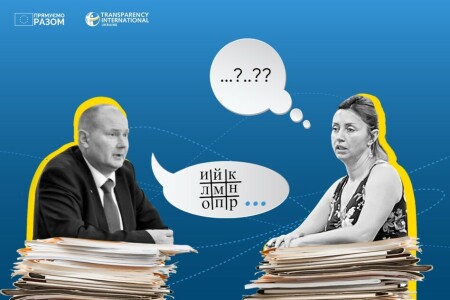
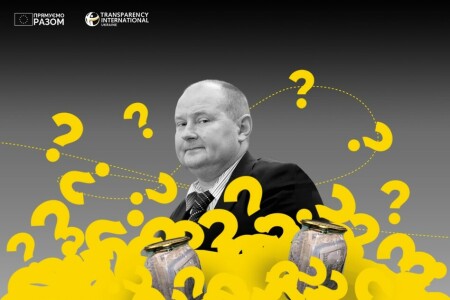
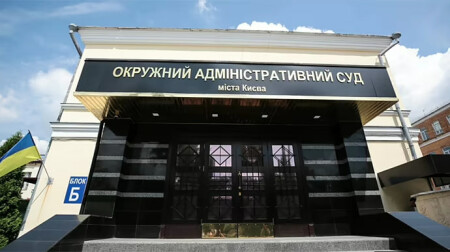
.png)
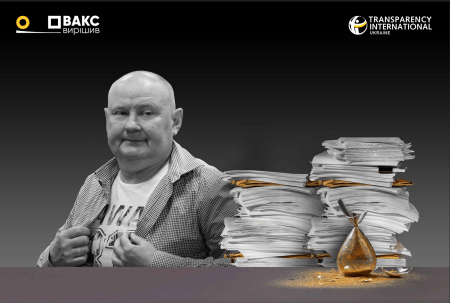

.png)
